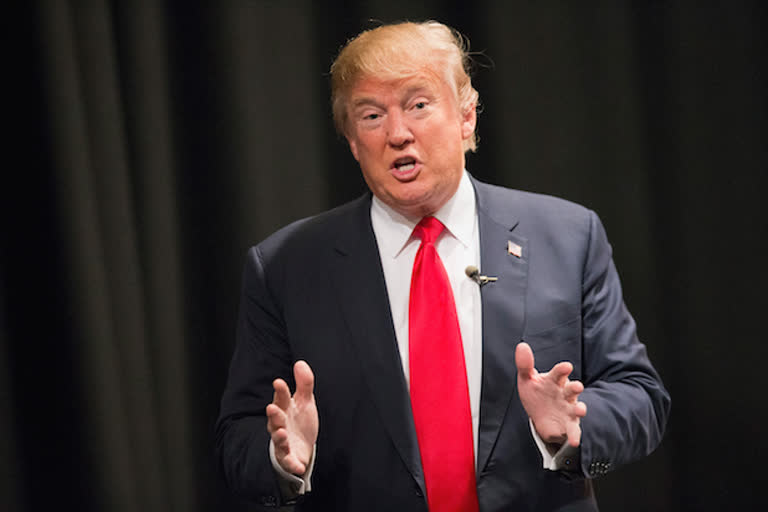Washington: US President Donald Trump has said that India and China are no longer "developing nations" and were "taking advantage" of the tag from the WTO and asserted that he will not let it happen anymore.
Trump, championing his 'America First' policy, has been a vocal critic of India for levying "tremendously high" duties on US products and has described the country as a "tariff king".
The US and China are currently engaged in a bruising trade war after Trump imposed punitive tariffs on Chinese goods and Beijing retaliated.
Earlier in July, Trump asked the World Trade Organisation to define how it designates developing-country status, a move apparently aimed at singling out countries like China, Turkey and India which are getting lenient treatment under the global trade rules.
In a memorandum, Trump had empowered the US Trade Representative (USTR) to start taking punitive actions if any advanced economies are inappropriately taking benefits of the WTO loopholes.
Addressing a gathering at Pennsylvania on Tuesday, Trump said India and China – the two economic giants from Asia – are no longer developing nations and as such they cannot take the benefit from the WTO.
Read more:India-Russia must focus on expanding trade ties: Former ambassador
However, they are taking advantage of a developing nation tag from the WTO, putting the US to disadvantage, he said.
"They (India and China) were taking advantage of us for years and years," Trump said.
The Geneva-based WTO is an intergovernmental organisation that regulates international trade between nations.
Under the global trade rules, developing countries claim entitlement to a longer timeframe for the imposition of safeguards, generous transition periods, softer tariff cuts, procedural advantages for WTO disputes and the ability to avail themselves of certain export subsidies.
Trump expressed hope that the WTO will treat the US "fairly".
He said the WTO views certain countries like China and India as "they're growing".
"Well, they've grown," he said and warned that the US will not let such countries to take advantage of the WTO.
"We're not letting that happen anymore...Everybody is growing but us," he said.



